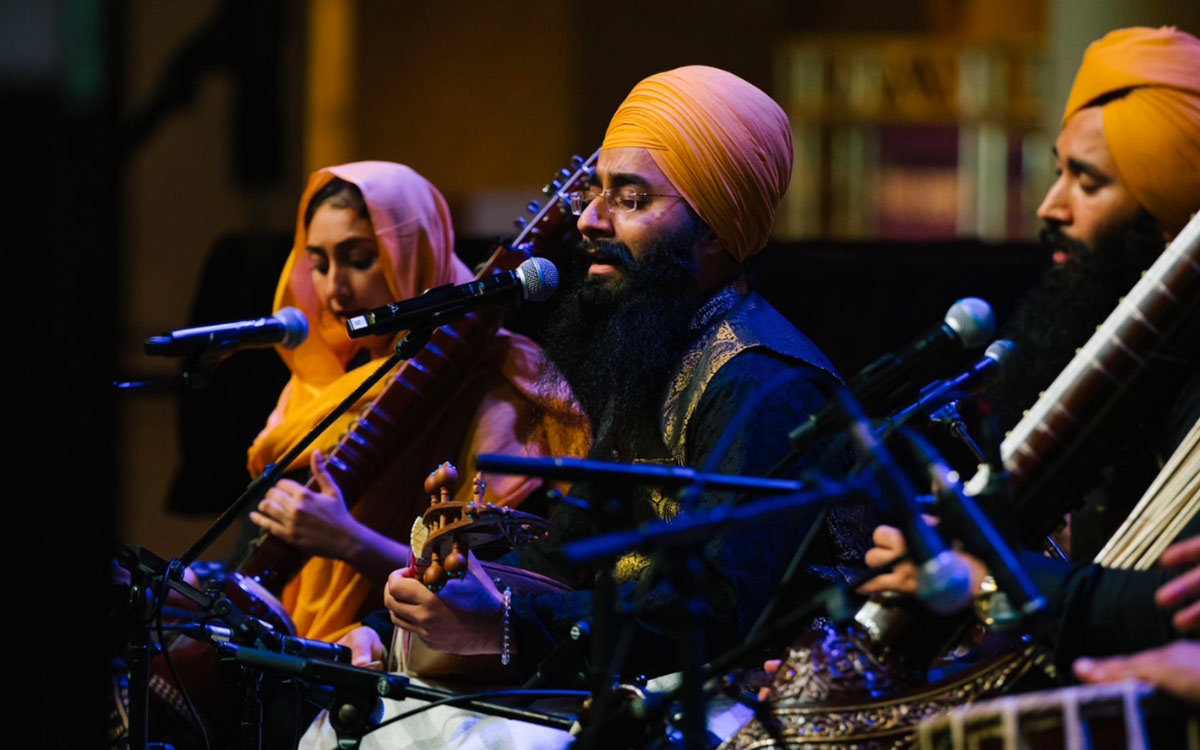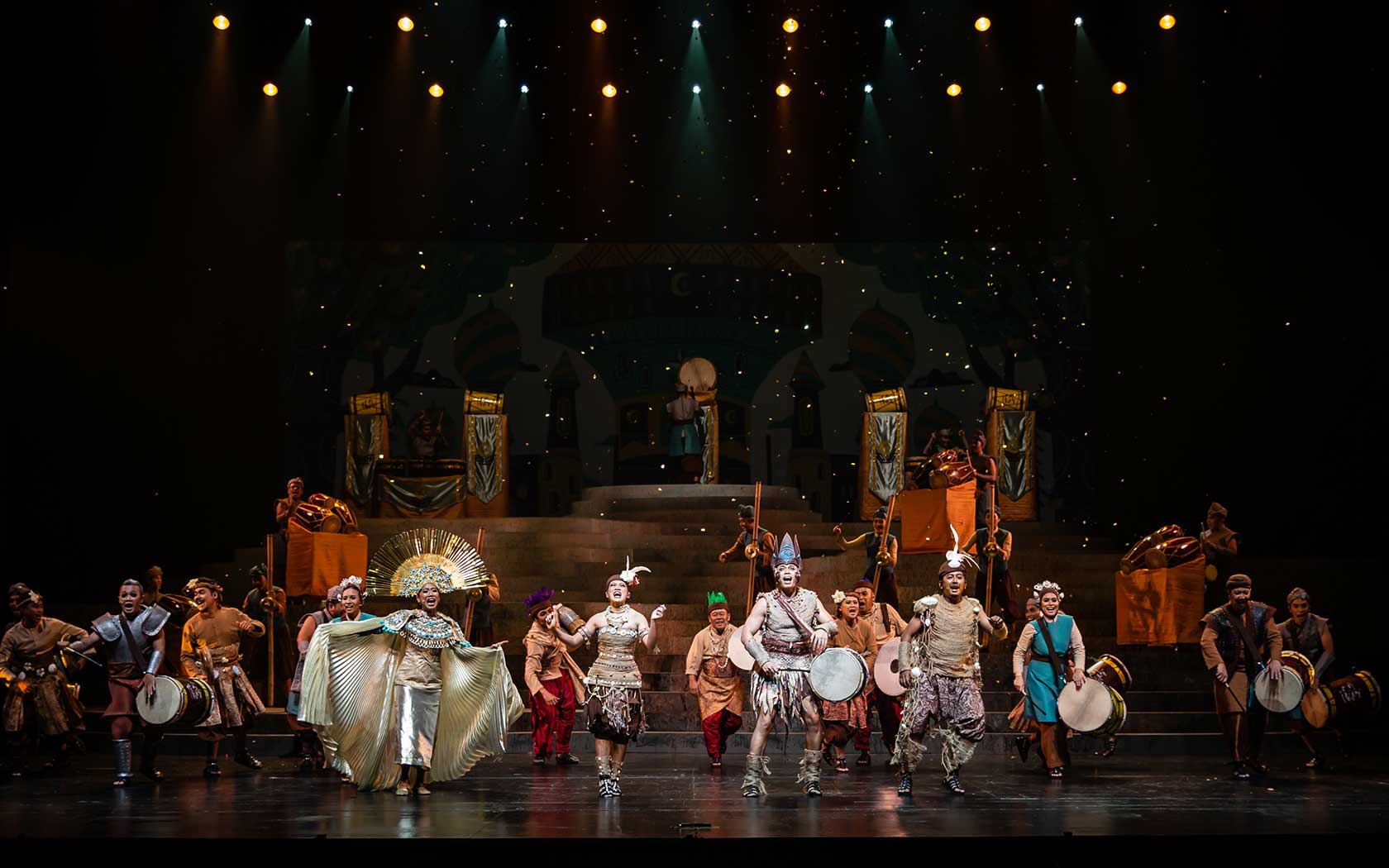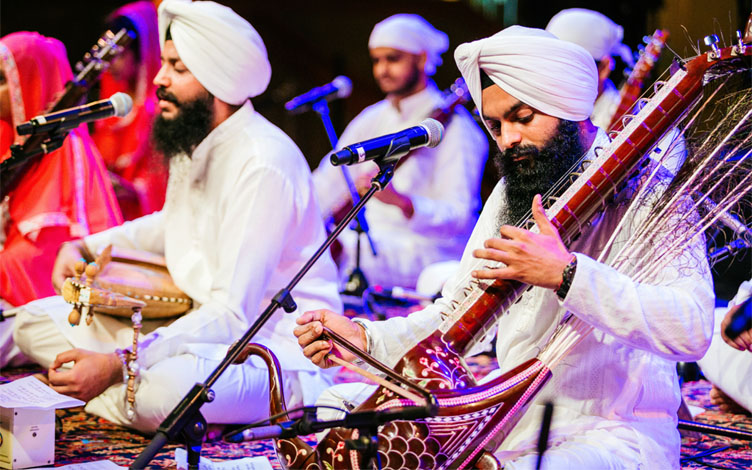We use cookies to improve your experience on our site. To find out more, read our data protection and cookie policy. By using our site, you agree to our use of cookies. Close to continue browsing.
Esplanade Presents
Kirtan: Glorification of the Supreme
(Intermission: None)
Esplanade Outdoor Theatre (29 Apr & 1 May), Esplanade Concourse (1 May)
This event is over.

This event is over.
“Whosoever listens to kirtan or sings kirtan of Hari shall be free of all ills.”
– Guru Granth Shahib
In Sikh tradition, no ceremony, occasion or event is complete without the singing of kirtan, which is a devotional hymn in praise of God. A recognised form of congregational prayer, it has, according to the scriptures, the ability to cleanse the mind of all impurities physical and sensual; liberate one from the yoke of time and death; cast away disease, sorrow and suffering; and bring peace and bliss.
Regulars at A Tapestry of Sacred Music, the singers and musicians from the Sikh Music Academy present the musical tradition of kirtan, which is the singing and contemplation of the hymns of the Sikh Gurus.
Understanding the Sikh religion
In Punjabi, the word “sikh” means “disciple”, and central to the faith is the relationship between the Sikh and his master, who guides him through the teachings and writings of the 10 Gurus. Sikhism is rooted in oneness and love, and encourages a life of servitude and spirituality. It is the belief that in leading a good life, one must work hard and live honestly, treat everyone equally, serve others, be generous to the less fortunate, and keep God close in the heart and mind at all times.
Hymns of Praise
Music is a central part of worship, with the religion’s 16th century founders being skilled poets, composers and musicians. The foremost of them was Guru Nanak, who wrote his teachings and revelations in poems, which he sang with his companion Bhai Mardana, a bard who played the rabab (a plucked string instrument).
Over time, Guru Nanak's hymns as well as those of his nine successors were compiled into what became the Guru Granth Sahib, the sacred scripture of the Sikhs. In the book, the hymns of the Gurus are grouped under 31 raags or ragas, modes characterised by a specific series of notes and path melodies. Each raga has a name, an associated time of day or year when it is best performed, and a specific emotion it is meant to induce.
In the hands of his spiritual successors and devout Sikhs, this musical tradition flourished as a means of spiritual elevation as they created and developed new ragas, styles and musical instruments. Continuing the tradition, the singing and contemplation of these hymns occur day and night at Sikh temples all over the world.
No tickets will be issued. Seats are available on a first-come, first-served basis.
Sikh Music Academy
The Sikh Music Academy is part of the Sikh Centre that offers courses on the gurmat sangeet, a unique musical tradition that spans five centuries, established by Guru Nanak Sahib, the founder of Sikhism. At the academy, students learn raag-based kirtan as well as string and percussion instruments.
29 Apr 2023, Sat
7.30pm
9.15pm
1 May 2023, Mon
7pm
ESPLANADE OFFSTAGE
Read, watch, listen


Become a member

Great arts experiences begin with Esplanade&Me. Join this membership to enjoy ticket specials on shows at Esplanade, early bird specials, promotions at Esplanade Mall, unlimited access to Offstage and more.

Never miss a show again. Get on our mailing list.
- Kirtan: Glorification of the Supreme












